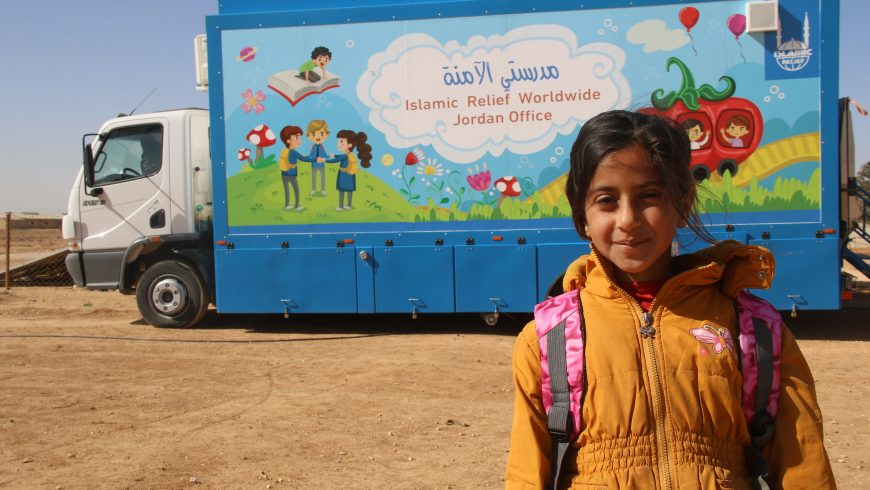The present worldwide refugee crisis is the largest since World War II. World Refugee day took place on June 20th.
Over 80 million people are fleeing persecution from their homelands. The people who are most impacted are children, given that the global disturbances brought on by conflict –and, lately, by the Covid-19 pandemic– have impacted their schooling.
This point was highlighted during an Islamic Relief webinar that was broadcast on June 20, which is World Refugee Day. According to UNESCO, some1.5 billion children around the globe, or about 87% of the student population, were out of school,
Education for girls, who are already 2.5 times more likely to be out of school than boys, are especially vulnerable to not returning.

Webinar guests stressed the need to do more to prevent further social calamities.
“We have a responsibility as a humanity to address this,” said Christina Tobias-Nahi, director of communications and public affairs for Islamic Relief USA.
“No matter where these children come from, or where they’re going, they are children first,” said Austin Chun of UNICEF USA, which has worked with Islamic Relief. “Without access to education, they’re also losing their future.”
One of the ways IRUSA tried to address education gaps is by bringing school lessons to the children. Literally. Between 2018 and 2020, the Islamic Relief Jordan office piloted “the Magic School Bus,” which provided academic learning to Syrian refugees in Jordan.
The concept was a simple one: a small, highly equipped bus travels to refugee camps, such as the Al Zaatari camp, and other remote areas of the country to provide lessons to young children. The instruction consisted of remedial lessons in mathematics, English, and Arabic. Teachers worked from 8 a.m. to 4 p.m.
Besides a teacher, students in the bus could find whiteboards, computers, and stationary.
The Magic School Bus project is currently sidelined, due to funding. Thus, in order to continue, more funding is required. Olivia Paras, manager of orphan programs for Islamic Relief Jordan, put it bluntly.
“These children rely upon us,” she said. “When it stops, their education stops.”
Eman Al-Hailan, an orphan children welfare assistant at Islamic Relief Jordan, said the bus has helped children to learn to read.
If the project is restored, Paras hopes to expand its reach.
“We need to reach more camps,” she said. “It is our responsibility to support these children.”
While the bus is one method to continue their education, Chu said various models of alternative learning are needed to ensure no child loses access.
One of the most popular modalites is learning by the radio. Some kids also learn through sign language interpretation through television. Another suggestion is putting self-learning and accelerated learning centers at camps.
“What we do now will have an enormous impact in the future,” Tobias-Nahi said.
Countries like Jordan especially need assistance, given the high number of refugees. There are 654,000 registered Syrian refugees in Jordan, but many believe the actual number is much higher. Jordan also serves as a sanctuary for more than 740,000 refugees from other countries, such as Iraq Yemen and Sudan
Despite being in a much safer environment, many Syrian refugees struggled in their learning due to vastly different education standards between the two countries. Also, some 40 percent of Syrian kids remained out of school due to social and economic difficulties. Child labor and poverty remain commonplace.
Chu said more needs to be done to amplify the voices of refugees. All levels of government should adopt more humanitarian policies and put in place effective programs. Ultimately, as Hillary Clinton once said, it takes a village.
“It will take all actors to respond to this crisis,” Tobias-Nahi said.